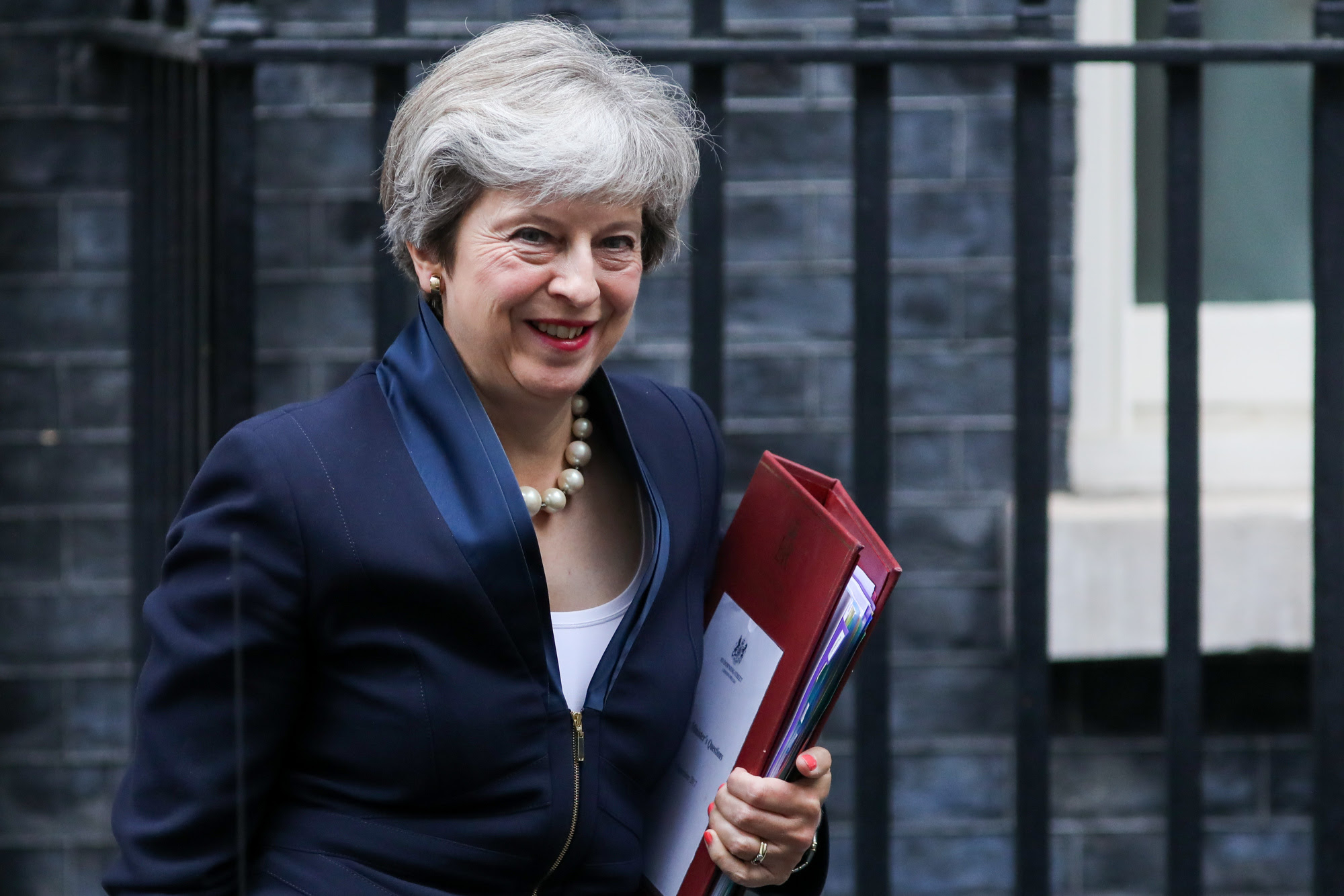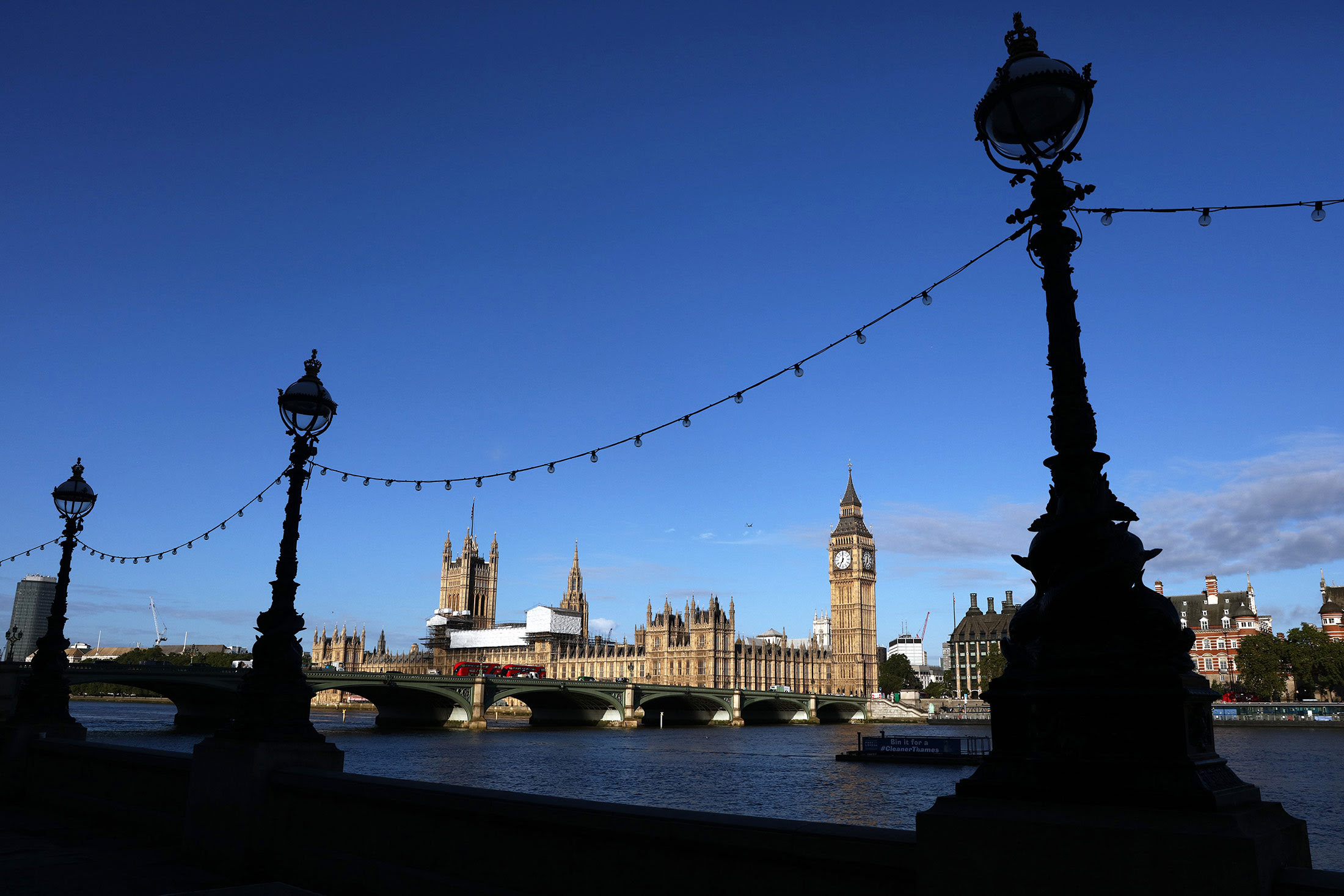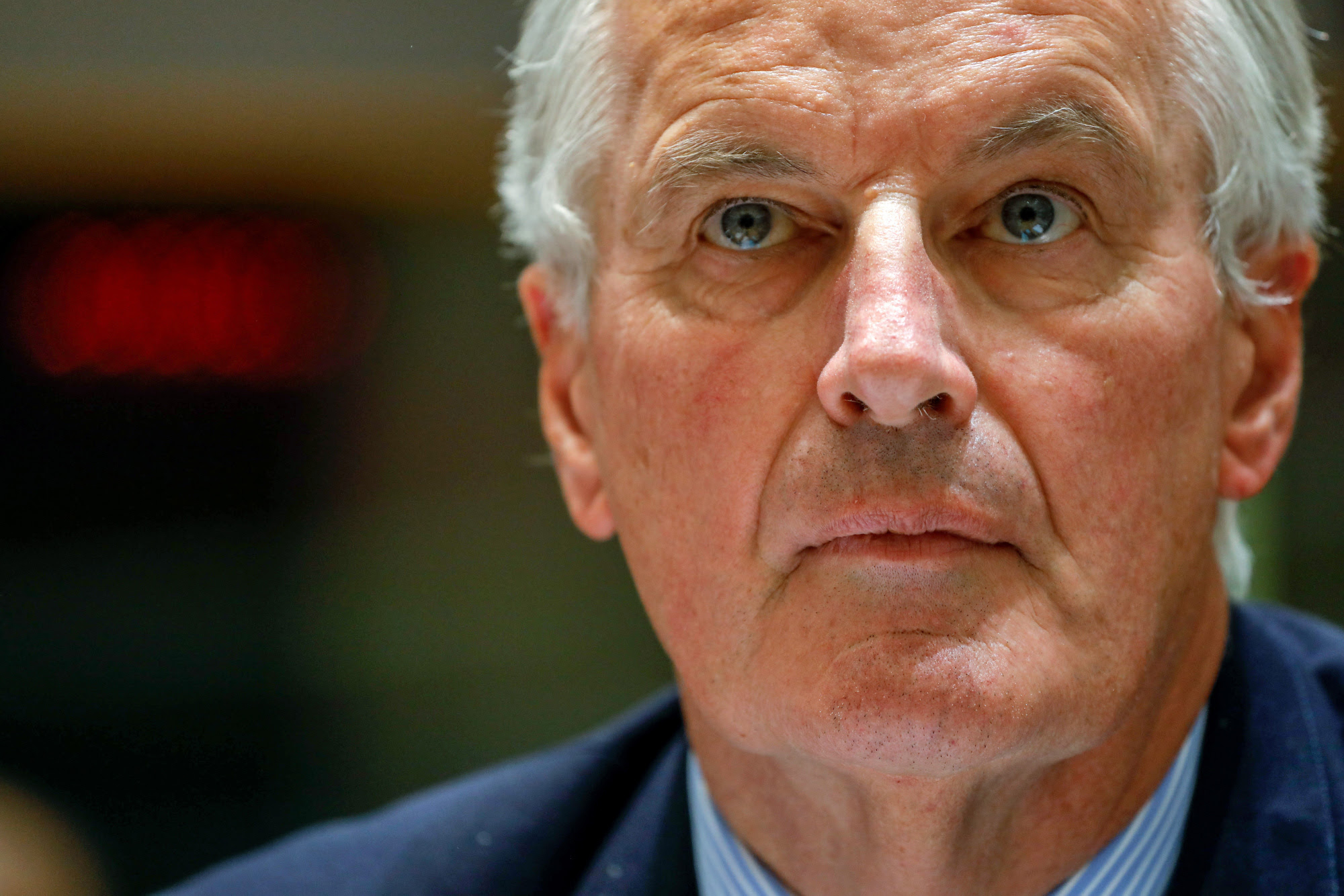Return of the cliff edge?
Leaked immigration proposals for post-Brexit Britain threaten to complicate the U.K.’s withdrawal from the European Union.
The draft, which is not final government policy, declared “free movement will end” as soon as the U.K. leaves the bloc on March 29, 2019. Those arriving in Britain after then might be obliged to register if they want to stay and would be subjected to stricter rules if they want to be joined by non-British family members. Their ability to remain will depend on skill levels, it said.
Businesses were quick to express their displeasure even as Prime Minister Theresa May called on them to train more British workers to fill vacancies. The Daily Telegraphreported Home Secretary Amber Rudd had distanced herself from the document.
The blueprint won’t go down well with the EU either, and could cost Britain the transition period it is seeking, reported Bloomberg’s Ian Wishart.

The region’s governments would probably insist that any interim arrangement that involves the U.K. having access to the single market would also need to maintain the bloc’s free movement rules, an EU official with knowledge of the negotiations said.
That means the U.K. probably wouldn’t be able to discriminate between British and EU citizens during that period or put EU workers into different categories.
The risk is that the cliff-edge companies had feared may be back on the table as the U.K. tries to enjoy the benefits of EU membership without the responsibilities.
Repeal Bill
May’s flagship piece of Brexit legislation will be debated for the first time Thursday, although opponents are unlikely to derail it for now.
The government wants the power to cut and paste all EU law into British statute so it can revise it later. Brexit Secretary David Davis will open the debate with a promise to work with possible critics.
With the main opposition Labour Party saying it’ll vote against the bill at the end of the so-called second-reading debate on Monday, and the Scottish National Party and Liberal Democrats also opposing the measure, Davis’s main task is ensuring they don’t tempt enough dissenters from his own Conservative Party to defeat the government.
The signs are fellow Tories won’t rebel yet, but pro-European Conservatives are more likely to oppose Davis when the bill moves onto the next step, called the committee stage. That’s when legislators can submit amendments, and backbenchers Anna Soubrey and Dominic Grieve have both expressed reservations about the government’s plan.
Of most concern is the aspect of the bill that would allow ministers to modify laws without parliamentary scrutiny.
“I look forward to the contributions of MPs from across the house,” May said in a statement. “But that contribution should fit with our shared aim: to help get the best Brexit for Britain.”
Brexit Latest
Businesses Balk | May’s office distributed a letter for senior executives at major U.K. companies to sign praising her Brexit approach, according to a draft seen by Bloomberg. Sky News, which first reported the move on Wednesday, said company chiefs expressed incredulity at being asked to sign.
Bill Opposition | There is a “powerful legal case” that the U.K. will not owe the EU any money at the time of withdrawal, the European Research Group, a coalition of more than 80 pro-Brexit Conservative lawmakers, said on Wednesday. Instead, the EU owes Britain about €10 billion ($11.9 million), Charlie Elphicke, one of the group’s members, said in a statement.
Barnier Speaks | EU chief negotiator Michel Barnier will talk to reporters in Brussels on Thursday after the EU releases a series of position papers on intellectual property rights and customs-related matters, among other topics. The U.K’s refusal to accept any financial obligations beyond its last payment to the EU budget in early 2019 is among the main impediments holding back talks, according to people briefed on a discussion between Barnier and European commissioners in Brussels on Wednesday. The Brexit discussion lasted only about five minutes, adding to signs that there’s no sense of urgency in the bloc to reach a swift conclusion.
“No Free Lunch” | German Finance Minister Wolfgang Schaeuble said there’s “no free lunch” in the Brexit talks and that the reality of the divorce is sinking in among U.K. policy makers. “Brexit was a decision that we think was wrong from every angle,” Schaeuble told a conference in Frankfurt. “But the Britons made it and now we must try to find solutions that will keep the damage to both sides as limited as possible.”
Frankfurt Calling | Deutsche Bank’s chief executive officer, John Cryan, said the lender’s hometown is the best placed city in Europe to win trading business after Brexit. Banks choosing Frankfurt for their licensed hub will have to set up full-scale operations in the country, not brass-plate offices with bankers commuting from London, Bundesbank board member Andreas Dombret told Bloomberg Television. The Financial Times reported German industry is establishing a taskforce to prepare for Brexit.
Science Grants | The European Commission awarded science grants to 406 early-career researchers throughout Europe, and Britain secured an outsize share with 79 handouts. Unsurprisingly, the U.K. said in a paper it wants to keep contributing to science projects after Brexit, though this will be subject to negotiations.

Trade Vision | Labour Party Brexit spokesman Keir Starmer told the Financial Times that the U.K. should consider staying in a customs union with the EU indefinitely, unless there is evidence that new trade deals would make Britain better off.
Pottery Barn Brexit | Rory Montgomery, an official at Irish Foreign Affairs & Trade ministry, said the onus is on the U.K. to come up with solutions to questions like the Irish border. It faces a “break it, own it,” problem, he said.
On the Markets | Sterling is becoming immune to bad news. The currency has rallied more than 2 percent against the dollar in the past two weeks, despite several pieces of disappointing economic data and a bumpy Brexit process. Three-month implied volatility on the currency, a gauge of expected swings in the exchange rate, is now little changed at 7.70 percent this quarter.




Comentarios
Publicar un comentario